Create a Safe & Stylish Commercial Kitchen With Epoxy
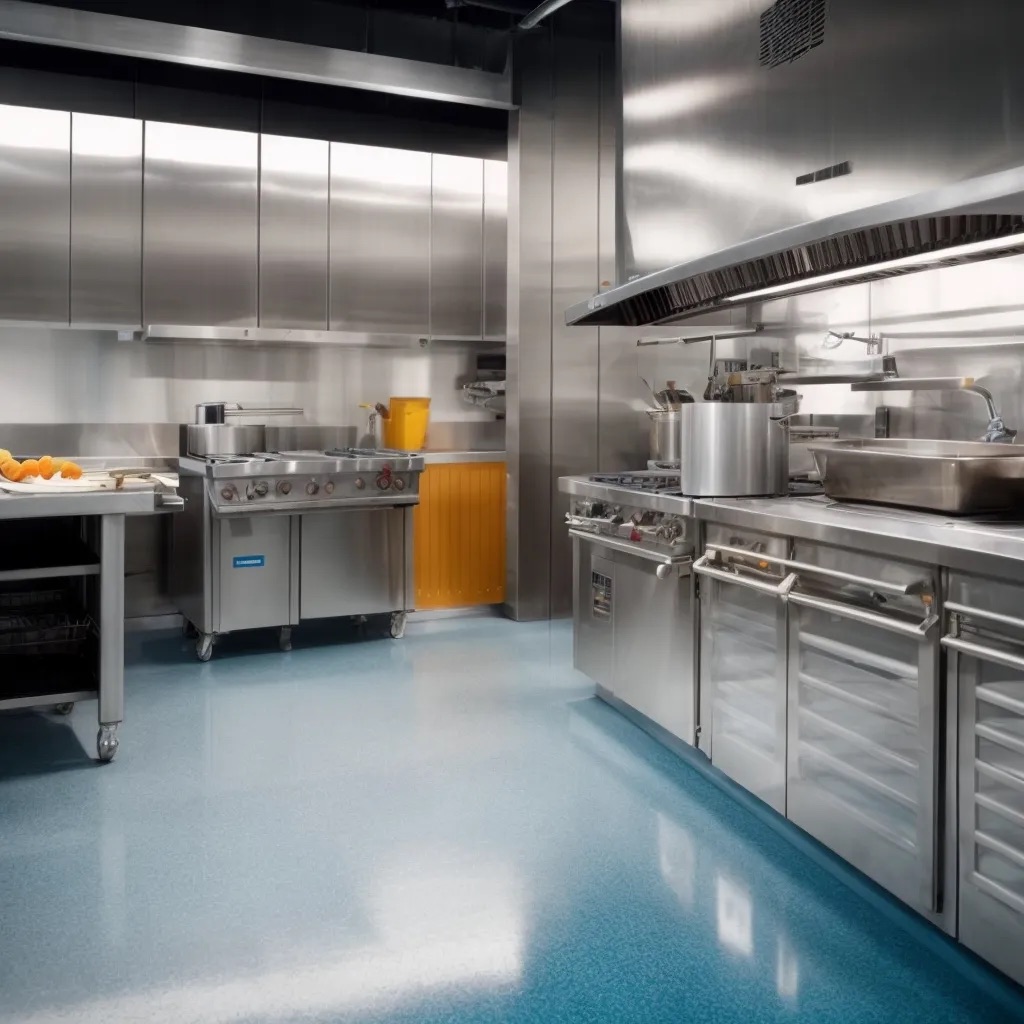
Benefits of Epoxy Flooring
To enhance the safety and aesthetics of your commercial kitchen, consider the numerous benefits of epoxy flooring. Epoxy flooring offers exceptional slip resistance, making it an ideal choice for environments prone to spills and moisture. This feature is crucial in a bustling kitchen where the risk of accidents is high. The texture of epoxy flooring provides traction underfoot, reducing the likelihood of slips and falls among your kitchen staff.
Furthermore, epoxy flooring boasts impressive chemical resistance properties. In a busy commercial kitchen where various cleaning agents, oils, and other substances are routinely used, this resistance is invaluable. Epoxy flooring can withstand exposure to a wide range of chemicals without deteriorating, ensuring its longevity and maintaining its appearance over time. This durability not only contributes to a safer kitchen environment but also saves you money in the long run by reducing the need for frequent repairs or replacements.
When considering the overall safety of your commercial kitchen, the slip resistance and chemical resistance of epoxy flooring are key factors to prioritize. By investing in epoxy flooring, you are not only enhancing the visual appeal of your kitchen but also prioritizing the well-being of your staff.
Safety Features of Epoxy
Enhance the safety standards in your commercial kitchen by implementing epoxy flooring, known for its exceptional slip resistance and chemical durability. Epoxy floors offer outstanding slip resistance, creating a secure environment for your kitchen staff to move around without the fear of accidents. The texture of epoxy flooring helps in reducing the risk of slips and falls, even in areas prone to spills or moisture.
Moreover, epoxy flooring is highly resistant to chemicals, making it ideal for commercial kitchens where spills of oils, acids, or cleaning agents are common. The chemical resistance of epoxy ensures that the flooring remains intact and safe, even when exposed to harsh substances regularly. This feature not only enhances safety but also prolongs the lifespan of the flooring, saving you maintenance costs in the long run.
Design Options for Epoxy
When considering design options for epoxy flooring in your commercial kitchen, you have a range of customizable choices to enhance both aesthetics and functionality. Color options play a significant role in creating the desired ambiance and visual appeal of your kitchen space. From classic neutrals like grey, beige, and white to bold choices such as red, blue, or green, epoxy coatings offer a wide spectrum to match your brand’s color scheme or design preferences.
Texture choices are another essential aspect to consider when designing your epoxy flooring. Smooth finishes are not only visually appealing but also easy to clean, making them a popular choice for commercial kitchens. Alternatively, textured epoxy floors provide enhanced slip resistance, crucial for areas where spills are common. Options like flake or quartz blends not only add texture but also contribute to hiding imperfections and enhancing durability.
Maintenance Tips for Epoxy
For optimal longevity and performance of your epoxy flooring in a commercial kitchen, regular maintenance practices are essential to preserve its appearance and functionality. Cleaning techniques play a vital role in ensuring the longevity of your epoxy floor. Sweep or vacuum the floor daily to remove debris that can scratch the surface. Mop the floor regularly using a mild detergent and water to clean spills and stains promptly. Avoid using harsh chemicals or abrasive cleaners as they can damage the epoxy coating.
To maintain the shine and durability of your epoxy floor, consider investing in a neutral pH cleaner specifically designed for epoxy floors. This will help prevent the buildup of dirt and grime. Additionally, placing mats at entry points and high-traffic areas can help minimize the amount of dirt and moisture that comes into contact with the floor, reducing wear and tear.
Longevity secrets for your epoxy flooring also include avoiding dragging heavy equipment or furniture across the floor, as this can cause scratches and dents. Promptly address any damage or chipping by applying a fresh coat of epoxy to protect the underlying layers.
Cost Considerations for Epoxy
To manage the costs effectively when considering epoxy flooring for your commercial kitchen, understanding the factors influencing the overall expense is key. Budget planning plays a crucial role in ensuring that the epoxy flooring project aligns with your financial expectations. When outlining your budget, take into account the size of the kitchen area, the complexity of the design desired, and any additional features like slip resistance or antimicrobial properties that may impact the overall cost.
While initial costs may seem higher compared to other flooring options, epoxy is a long term investment in your kitchen space. Its durability and low maintenance requirements make it a cost-effective choice over time.
Installation Process of Epoxy
The installation process of epoxy flooring in a commercial kitchen involves meticulous preparation to ensure a smooth and durable application. Surface preparation is a critical step before laying down the epoxy. It includes cleaning the existing floor thoroughly to remove any dirt, grease, or debris. Any cracks or imperfections in the concrete need to be repaired to create a seamless base for the epoxy to adhere to. Once the surface is clean and smooth, it is then etched or mechanically abraded to promote better adhesion.
After the surface preparation is complete, the epoxy is mixed according to the manufacturer’s instructions. The mixture is then applied to the floor using rollers or squeegees to ensure an even coat. It is crucial to work quickly and efficiently during this process to prevent the epoxy from drying unevenly.
Curing time is another essential aspect of the installation process. The floor needs sufficient time to cure and harden properly before it can withstand foot traffic or heavy equipment. Depending on the type of epoxy used, curing times can vary. It is vital to follow the manufacturer’s recommendations regarding drying times and avoid using the kitchen until the epoxy is fully cured to achieve the best results.
Durability of Epoxy Flooring
Ensuring the longevity of epoxy flooring in your commercial kitchen requires proper maintenance and regular inspections to uphold its durability under daily wear and tear. Epoxy flooring provides significant longevity benefits due to its high resistance to impacts and heavy foot traffic. The durable nature of epoxy makes it a reliable choice for commercial kitchens where spills, heavy equipment, and constant movement are common occurrences.
The impact resistance of epoxy flooring is one of its standout features. Its ability to withstand dropped utensils, heavy pots, and continuous foot traffic without showing signs of wear makes it an ideal flooring option for a bustling commercial kitchen environment. By choosing epoxy for your kitchen flooring, you are investing in a long-lasting solution that can withstand the demands of a busy kitchen setting.
Regular maintenance routines, such as daily cleaning to remove debris and spills promptly, will contribute to preserving the durability of your epoxy flooring.
Comparing Epoxy to Other Options
When considering flooring options for your commercial kitchen, epoxy stands out for its exceptional durability and resistance compared to other materials. Epoxy flooring offers superior slip resistance, making it a safe choice for busy kitchen environments where spills are common. Unlike other options like tile or vinyl, epoxy provides a seamless surface that reduces the risk of slips and falls, ensuring the safety of your staff.
In terms of chemical resistance, epoxy outperforms many traditional flooring materials. Commercial kitchens often use harsh chemicals for cleaning and sanitizing, which can deteriorate standard flooring over time. Epoxy, on the other hand, is highly resistant to chemicals, including acids and alkalis, ensuring that your flooring remains intact and looking new for longer periods.
Compared to options like concrete or rubber, epoxy offers a perfect balance of durability and aesthetic appeal. Its seamless surface not only enhances the overall look of your kitchen but also simplifies maintenance, as there are no grout lines or seams where dirt and bacteria can accumulate.
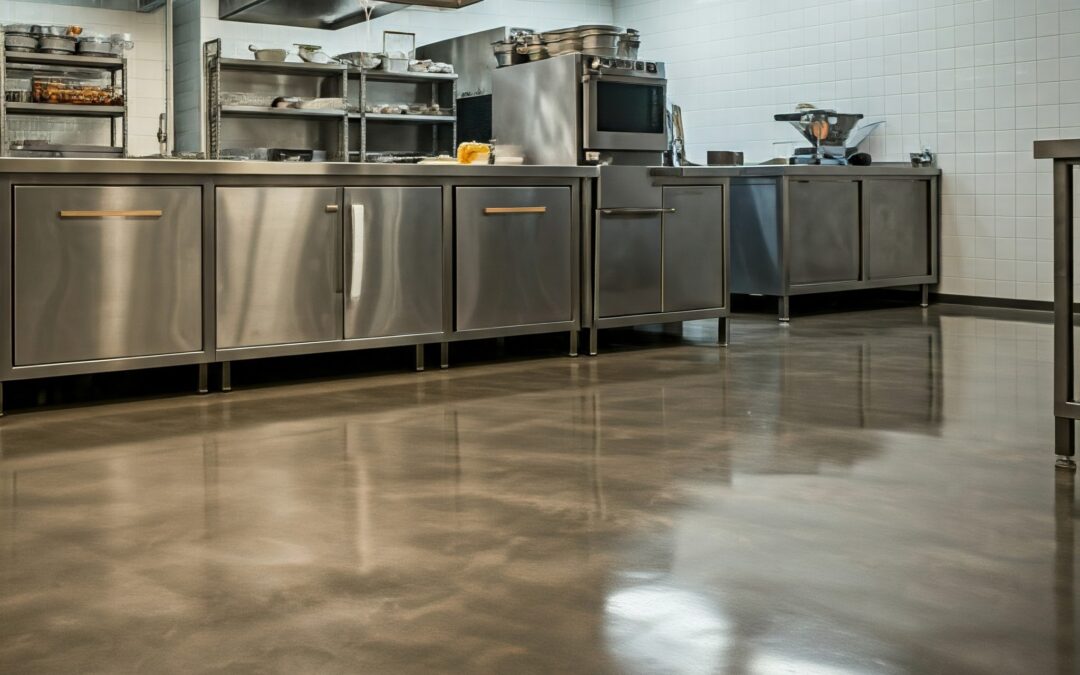
Transform Your Space with Commercial Concrete Polishing: Services and Benefits
Concrete polishing is a transformative solution for commercial, industrial, and warehouse spaces, offering durability, aesthetic appeal, and low maintenance. Whether you're revitalizing an old floor or finishing a new one, polished concrete provides a sleek and...
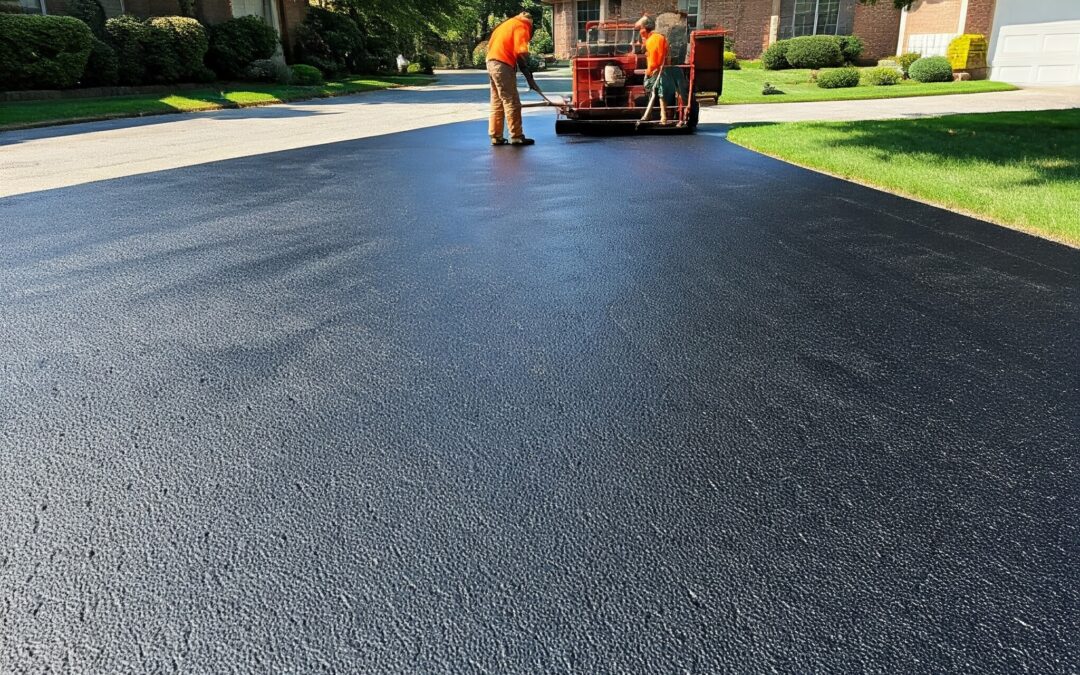
Seal Coating Driveways: Costs, Benefits, and Expert Solutions
Seal coating driveways is an essential maintenance step that protects surfaces, enhances durability, and boosts curb appeal. Whether you have asphalt or concrete, a well-applied seal coat creates a protective barrier against weather, UV rays, and wear, extending the...
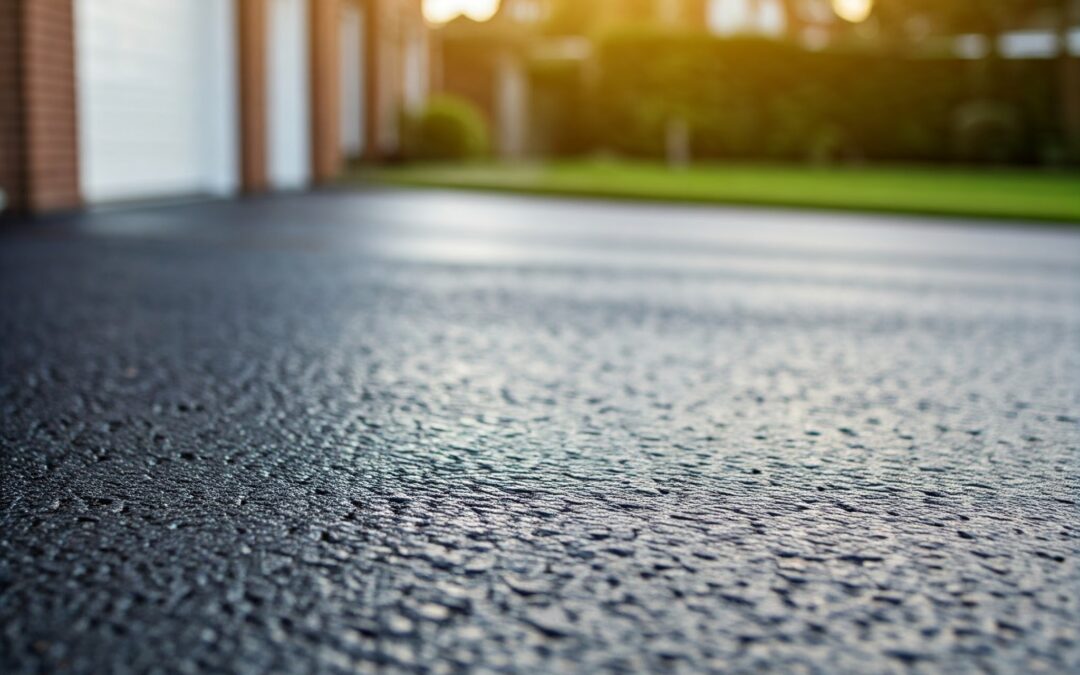
Driveway Coating Solutions: Costs, Ideas, and Best Options
Driveway coatings are essential for enhancing durability, improving aesthetics, and protecting your surface from harsh weather and wear. With various options available, choosing the right coating for your needs depends on factors such as cost, durability, and desired...
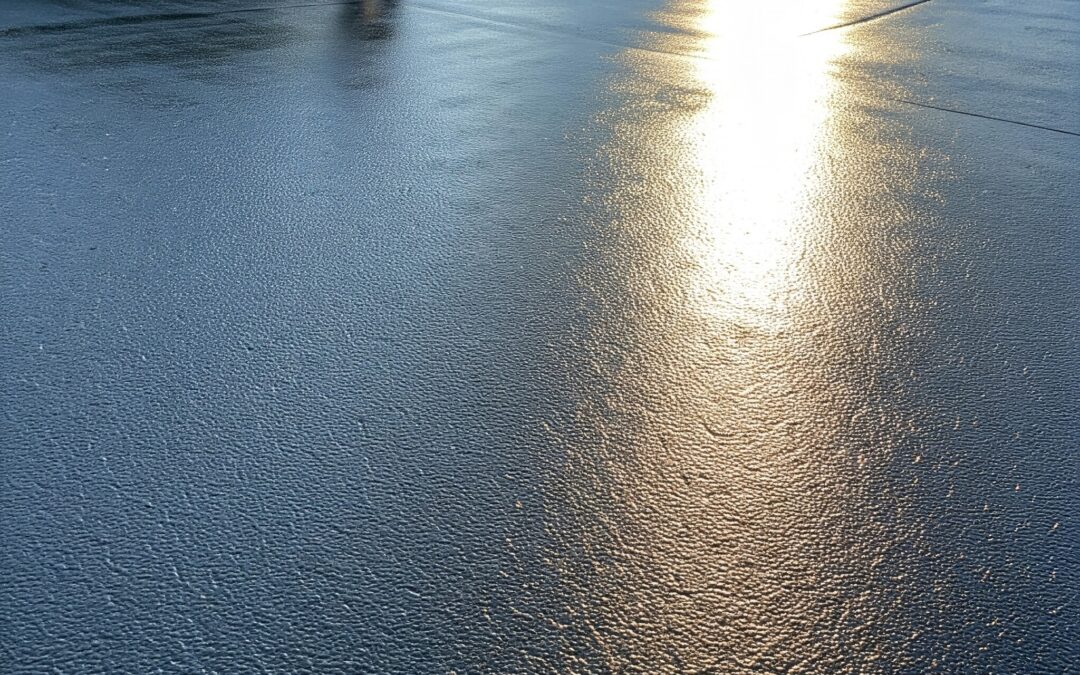
Seal Coating Driveways: Costs, Benefits, and Expert Tips
Seal coating is an essential maintenance step for asphalt driveways, offering a cost-effective way to protect and enhance their longevity. By applying a protective layer, seal coating shields driveways from wear and tear caused by weather, traffic, and UV rays. If...
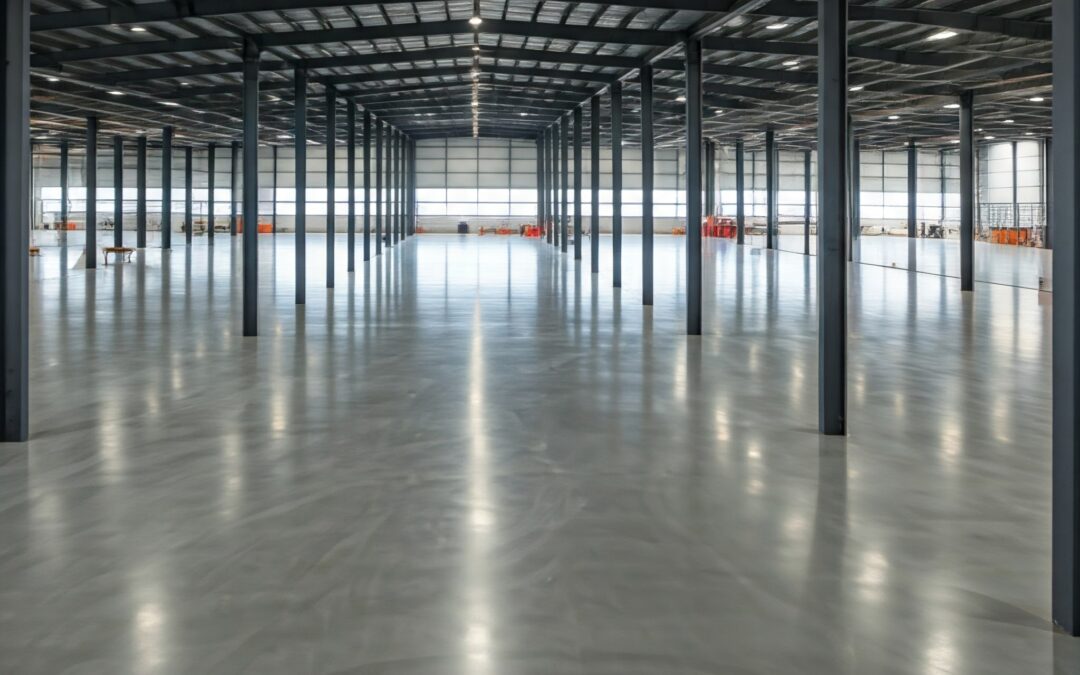
Industrial Epoxy Flooring Solutions: Durable, Safe, and Long-Lasting
Industrial epoxy flooring is a cornerstone of durable and safe workspaces, offering unmatched performance in high-demand environments. From warehouses to manufacturing plants, these floors provide resistance to wear, chemicals, and impact while maintaining a sleek and...
